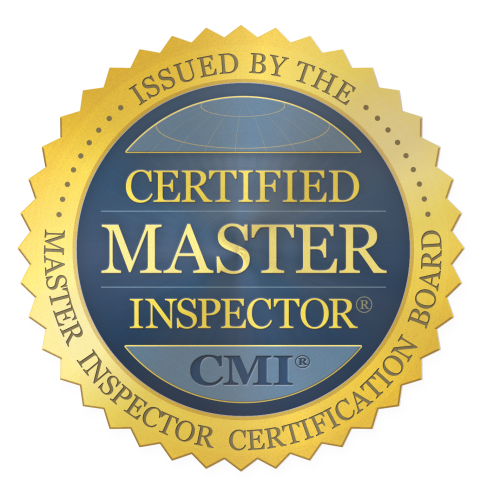Black Algae On The Roof
Prevalent in Northern Virginia, and to the south, is a roof staining problem called "black algae." It looks like a dripping, running black stain, usually on a shaded roof, or on the side facing away from direct sunlight. Incorrectly called mildew and fungus, the staining is an algae, typically Gloeocapsa magma. I see it all the time.
The black algae is usually distinguished as a general stain.
It runs down the roof as it is carried by water.
It grows where it obtains food in the roofing materials.
I do not know how prevalent it is around the country, but suspect it is common.
Algaes can grow on all types of roof surfaces - I have seen it growing on asphalt shingles, clay, concrete asbestos and even slate.
It seems to me that it has become more common in the last 15 years or so. One theory as to why is that manufacturers began then to change the composition of shingles, adding more limestone to lend more weight. Black algae LOVES a lime buffet!
Sometimes it is hard to distinguish from a roofing problem.
Asphalt shingles can sometimes be damaged on installation and a pin prick spot opens up and becomes a problem. Over time the asphalt can begin dripping out. The single point of such a black discharge may be what you see in the lower right corner of this roof, and under the window.
But that could be black algae also!
The drippy black on the top right of the roof is likely black algae.
I have been told by more than one roofer that this algae is one way to date shingles.
It seems the black algae begins taking hold and manifesting on shingles at about 8 or 10 years of age.
That time frame has proved true on my inspections. These photos were taken of my house in Bristow, Viorginia, so black algae happens to everybody!
So, what can a homeowner do?
Well, you already know NOT TO PRESSURE WASH IT!
Be sure your shingles are not old and fragile. If so, you may as well replace them. Then, test your cleaning on a small area to see if it works.
The algae must be killed for any cleaning to be effective. The oxygen cleansers (sodium percarbonate) will clean the roof, but not necessarily kill the algae.
Experimenting on my roof, the recipe I developed is this:
Tri-sodium Phosphate (the substitute, not the original which is environmentally unsafe) can be diluted in hot water and sprayed onto the shingles. It should sit for a day.
THE RECIPE:
2.5 gallons Water mixed with 1.5 gallons Bleach. Stir in 1 Cup of TSP (phosphate free) until diluted, or dilute it first in hot water. Tri-sodium Phosphate can be obtained at any hardware or paint store. Remember to use the safer phosphate-free mix.
Spray on the roof, let it sit for half a day, or overnight, or more if the stains are real bad, and rinse off with a hose. A couple of areas on my roof required more than one application.
This formula also works on the green stains or mildew stains on siding! IT WILL ALSO WORK ON ROOF MOSS DEVELOPMENT. Then just hose the dead moss away.
This black algae is aggressive and hard to get rid of. It may take more than one application. So good luck!
If you don't like my formula above, here is a link to a popular algae cleaner. I'm not sure how far it would go on a large roof. The link here is not as popular, but is a concentrate and comes with a sprayer.
My recommendation: when you see what is likely black algae on a roof, it is ugly but does not eat the roof very quickly. And it might be an indicator as to shingle age! It can be cleaned! All three of the roofs above are 12 years old and in the same neighborhood.

Comments
Post new comment